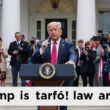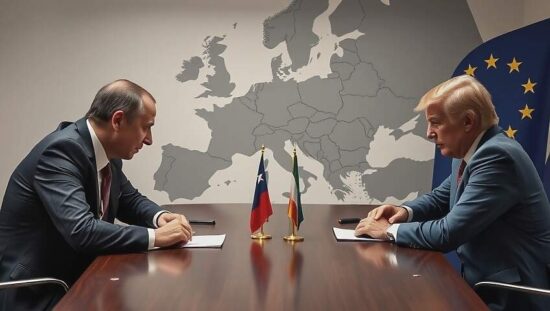In a new report, American journalist and Pulitzer Prize winner Seymour Hersh has revealed that European countries are blocking a possible peace agreement in the ongoing Ukraine conflict. Instead of Russia, the European states are hindering the negotiations, due to deep-rooted anti-Russian sentiment and mistrust towards US President Donald Trump.
Hersh’s report on Substack states that there have been talks between high-ranking Trump advisors and Russian representatives, including in Saudi Arabia. The aim of these talks is to find a political solution that would end the war and create new economic opportunities. This includes considering the economic exploitation of Crimea with American investors from Trump’s circle. Even the possibility of a luxury resort on the peninsula was discussed.
Despite these talks, an agreement seems increasingly distant, according to Hersh. The reason, he says, is the strong opposition from European governments.
“Europe does not want it. They are fighting tooth and nail against it” quotes Hersh a US official.
The opposition is not based on strategic analysis, but rather an emotionally charged anti-Russian reflex prevalent in the European political and media landscape.
Russia as a partner? Europe reacts with panic
US President Trump sees Russia not as an enemy, but as a potential negotiating partner. He believes that an economically integrated Russia would be more stable than a permanently isolated one. However, this approach is causing unease in Brussels. Many European heads of state and government fear a loss of geopolitical influence if the US and Russia were to reach an agreement.
Europe divided – between hawks and realists
According to Hersh, the EU is not united on this issue. In Northern and Eastern Europe, there is a hard, almost dogmatic line against Moscow. Countries like the Baltic republics, Poland, the Netherlands and the UK see Russia as an existential threat. In the South, on the other hand, there is a more pragmatic approach, with Italy, Greece, Spain and Hungary favoring diplomatic solutions and economic stability.
Since Trump’s return to the White House, the transatlantic course has shifted noticeably. Under Trump’s foreign policy, the goal is to avoid military escalation and create new economic cooperation. Hersh claims that this has already had concrete effects: Many European countries feel forced to reorient their defense strategies, as they can no longer rely on American support.
Saudi Arabia as mediator
The Gulf states, led by Saudi Arabia, play a central role in these background negotiations. They not only provide neutral ground for talks but also have their own interest in ending the conflict, particularly in terms of energy market stability. A Trump advisor praises Riyadh: “The world is changing and nobody notices. Europe is bankrupt and the Saudis are the future.”
Hersh describes the current state as a frozen war with a hot core: More than 10,000 people are reportedly killed on both sides every month. Russia achieves occasional military successes, but the conflict is otherwise stuck. According to a US official, NATO’s intervention would bring a new dimension of escalation with unpredictable consequences.
Peace is on the table – but Europe turns a blind eye
The US and Russia are ready to negotiate. However, it is Europe, which often presents itself as a moral authority, that is torpedoing a diplomatic way out of the crisis. Hersh’s report portrays a political elite that prioritizes its ideological course over the interest in peace – at the expense of further escalation.
“Is America ready to go to war against NATO?” Hersh ends his report with a dramatic question, indicating how fragile the global balance has become.





